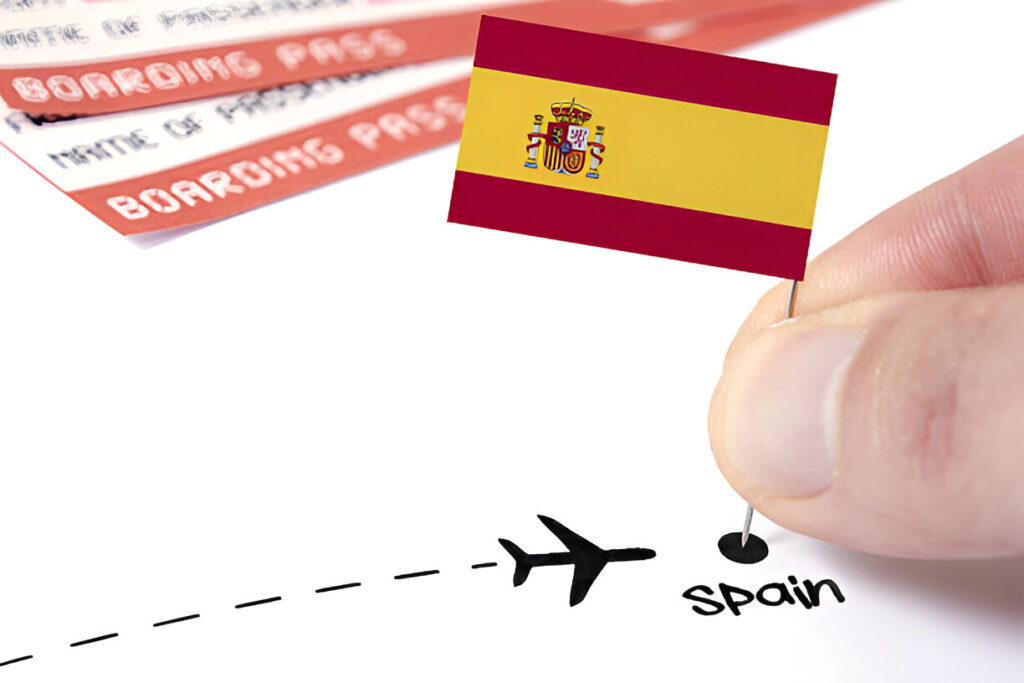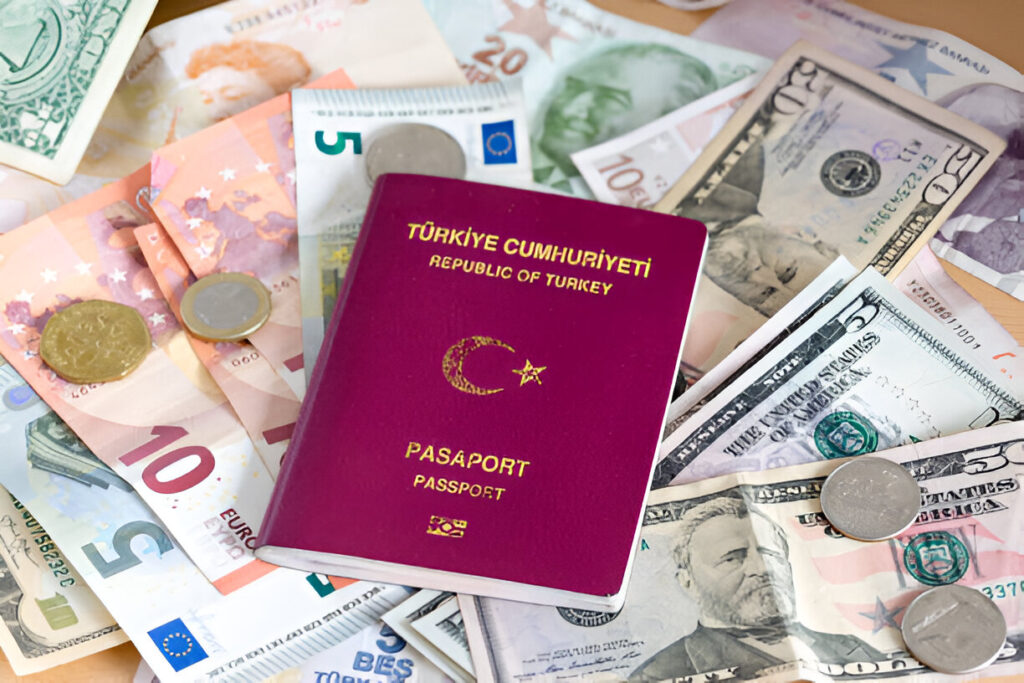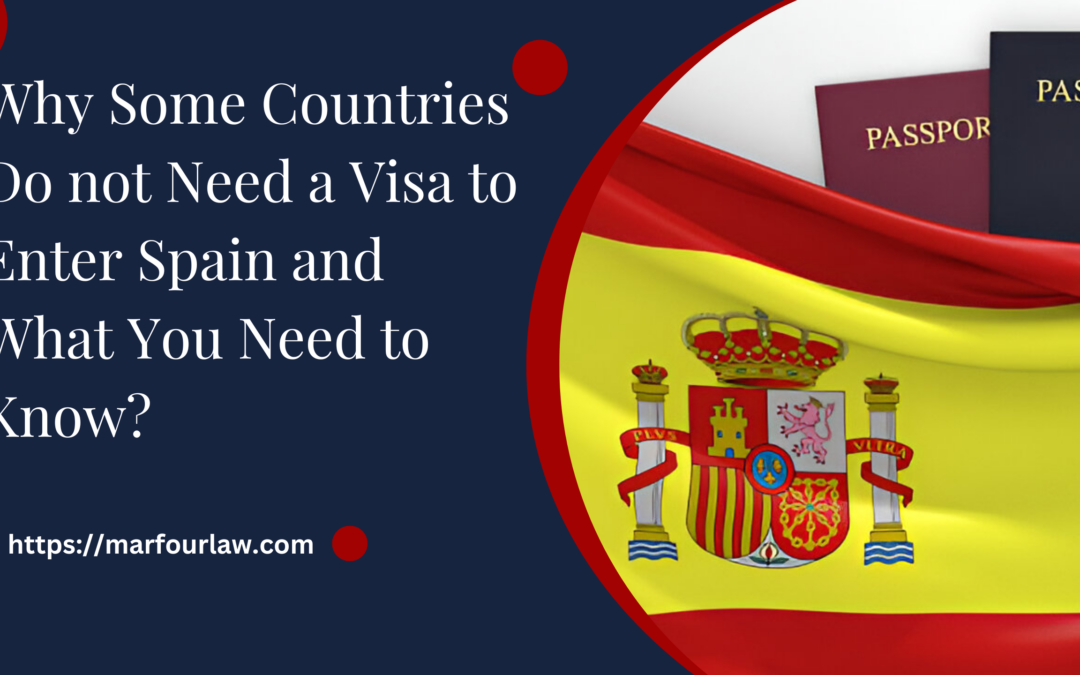Countries Don’t Need a Visa to En
Countries Do not Need a Visa to Enter Spain often leave travelers with many questions. If you’re planning a trip to Spain, understanding the visa requirements can save you from unexpected hassles. So, do you need a visa to go to Spain? Well, it depends on where you’re from. In this blog, we’ll dive deep into which countries enjoy visa-free entry to Spain, what exceptions there might be, and everything in between. Let’s explore the ins and outs of this topic with an easy-to-digest breakdown.
Why Some Countries Do not Need a Visa to Enter Spain?
Some countries are part of agreements with Spain (and the broader Schengen Area) that allow their citizens to travel visa-free for short stays. This typically stems from diplomatic agreements, strong ties, or reciprocity between the nations involved. The goal is to promote tourism and business exchanges while maintaining security and immigration control.
Visa Waiver Agreements and Their Impact
Visa waiver agreements are mutual deals where two countries agree to allow their citizens to travel freely between them without needing a visa for short stays. This simplifies travel and boosts economic ties between the countries.
What Are the Schengen Rules and How Do They Affect Visa-Free Travel?
The Schengen Area is like a large, open playground for European travelers. It consists of 27 countries that have agreed to abolish internal borders among themselves, allowing people to move freely from one country to another without needing to go through passport control. This makes traveling across Europe much easier for visitors from both within and outside the Schengen Area. Let’s dive into what these rules are and how they impact visa-free travel.

The Basics of Schengen Rules
The Schengen rules aim to create a unified travel experience for people moving within the member countries. Essentially, once you’re in any of the Schengen countries, you can travel to the others without additional checks. Think of it as having a single visa that lets you roam around a huge part of Europe as if it were one big country. But there’s more to it.
Visa-Free Travel and What It Means
Visa-free travel is a significant perk for many travelers. For citizens of certain countries, this means they don’t need a visa to visit Schengen Area countries for short stays, usually up to 90 days within a 180-day period. This is like having a fast pass for entry into many European destinations. But it’s important to know that this visa-free access isn’t an automatic guarantee of entry. Border guards can still check your documents and decide whether to let you in.
How Schengen Rules Affect Travelers?
For travelers from outside the Schengen Area, the rules can be a bit more complex. If you’re from a country that needs a visa, you’ll need to apply for a Schengen visa before your trip. This visa allows you to travel across all Schengen countries for up to 90 days. It’s a bit like getting a golden ticket to roam freely among many European countries, but you’ll need to go through the application process first.
The Schengen Visa Application Process
Applying for a Schengen visa involves gathering various documents, including proof of travel insurance, evidence of financial means, and a valid passport. You’ll also need to demonstrate your travel plans and reasons for visiting. While the process might seem daunting, it’s designed to ensure that travelers meet the entry requirements and don’t overstay their visit.
What Happens if You Overstay Your Visit?
Overstaying your allowed time can lead to serious consequences. If you exceed the 90-day limit, you might face fines, deportation, or even a ban on re-entering the Schengen Area for a period. It’s crucial to keep track of your stay and make sure you leave before your time is up. Staying within the rules will help you avoid any hassles and ensure that your travel experience remains smooth.
Which Countries Do not Need a Visa to Enter Spain?
If you’re planning a trip to Spain, it’s helpful to know which countries have visa-free access. Spain, as part of the Schengen Area, allows visitors from certain countries to enter without a visa. Here’s a list of 20 countries whose citizens can enjoy this privilege, along with some details about what that means for travelers.

United States
US citizens can visit Spain for up to 90 days within a 180-day period without needing a visa. Just make sure your passport is valid for at least three months beyond your planned stay.
Canada
Canadians can also stay in Spain for up to 90 days in a 180-day window without a visa. Similar to US travelers, having a passport with at least three months’ validity is required.
Australia
If you’re from Australia, you can visit Spain for up to 90 days without needing a visa. Ensure your passport is valid for the entire duration of your stay plus three additional months.
New Zealand
New Zealanders can enter Spain for a short stay of up to 90 days without a visa. Just keep your passport in order and check its validity before traveling.
Japan
Japanese citizens enjoy the same 90-day visa-free access to Spain. Their passports should be valid for the duration of their stay and three months beyond.
South Korea
Travelers from South Korea can stay in Spain for up to 90 days without a visa. Ensure your passport remains valid throughout your stay plus three additional months.
Singapore
Singaporean citizens can visit Spain for up to 90 days visa-free. Like other travelers, they must have a passport valid for at least three months beyond their stay.
Malaysia
Malaysians can enter Spain without a visa for up to 90 days. A passport valid for the duration of their visit plus three months is necessary.
Taiwan
Taiwanese passport holders can stay in Spain for up to 90 days without needing a visa. Make sure your passport is valid for the entirety of your trip and three months afterward.
Hong Kong
Residents of Hong Kong can visit Spain visa-free for up to 90 days. Their passports should be valid for at least three months beyond their stay.
Switzerland
Swiss citizens can visit Spain without a visa for up to 90 days, thanks to their country’s participation in the Schengen Area. Their passports must be valid for at least three months beyond their trip.
Norway
Norwegian travelers can stay in Spain for up to 90 days without a visa. As with other countries, a passport valid for the duration of their visit and three additional months is required.
Iceland
Icelanders also benefit from visa-free access to Spain for up to 90 days. A valid passport for the length of stay plus three months is essential.
Liechtenstein
Citizens of Liechtenstein can visit Spain for up to 90 days without a visa. Their passports must remain valid throughout their stay plus three months.
Andorra
Andorran passport holders can stay in Spain without a visa for up to 90 days. Ensure that their passports are valid for the full length of their visit plus three months.
Monaco
Monaco’s residents enjoy visa-free entry to Spain for up to 90 days. They need to keep their passports valid for the entire trip and three months beyond.
San Marino
San Marino citizens can visit Spain for up to 90 days without needing a visa. Their passports should be valid for the duration of their stay and an additional three months.
Vatican City
Travelers from Vatican City can enter Spain visa-free for up to 90 days. Their passports need to be valid for the entirety of their stay plus three months.
United Arab Emirates
UAE citizens can stay in Spain for up to 90 days without a visa. They must have a passport valid for the duration of their visit and three months beyond.
For all these countries, while a visa is not required, it’s crucial to have a passport that remains valid for the length of your stay and at least three months afterward. Always check any specific entry requirements or travel advisories before your trip to ensure a smooth and enjoyable visit to Spain.
Do Turkish Citizens Need a Visa to Enter Spain?
If you’re a Turkish citizen planning a trip to Spain, you might be wondering if you need a visa to enter the country. Let’s break this down so you know exactly what to expect before you pack your bags.

Visa Requirements for Turkish Citizens
Yes, Turkish citizens do need a visa to enter Spain. Spain is part of the Schengen Area, which means that Turkish travelers must apply for a Schengen visa. This visa allows you to visit not just Spain, but also other countries within the Schengen zone. So, if you’re planning a European vacation that includes a few stops, this visa can cover it all.
Types of Visas
There are several types of Schengen visas, depending on the purpose of your visit. For tourism or a short stay, you’ll need a short-stay Schengen visa. This type of visa typically allows you to stay for up to 90 days within a 180-day period. If you’re heading to Spain for business or a family visit, you’ll still need a Schengen visa, but the application process might slightly differ depending on your specific situation.
Application Process
Getting your Schengen visa involves a few steps. First, you’ll need to fill out an application form and gather some documents. These usually include proof of travel insurance, your flight itinerary, hotel reservations, and evidence of financial means to support yourself during your stay. You’ll also need to book an appointment at the Spanish consulate or an authorized visa application center in Turkey. During the appointment, you’ll submit your documents and might have to attend an interview.
Processing Time
Applying for a visa can take a bit of time, so it’s a good idea to start the process well in advance of your travel date. Typically, it takes around 15 calendar days to process a Schengen visa, but this can vary depending on your individual case and the workload of the consulate. Make sure to check the specific processing times when you apply.
Tips for a Smooth Application
To avoid any hiccups, make sure all your documents are complete and accurate. Double-check that you’ve filled out the application form correctly and that your passport has at least two blank pages and is valid for at least three months beyond your planned stay. If you have any questions or need help, don’t hesitate to contact the consulate or visa application center for guidance.
So, there you have it! If you’re a Turkish citizen planning a trip to Spain, make sure to get your Schengen visa sorted out before you go. With the right preparation, your trip can be smooth and enjoyable. Safe travels!
What Are the Exceptions to Visa-Free Travel to Spain?
When you’re planning a trip to Spain, it’s crucial to know when you might need a visa even if your nationality usually enjoys visa-free entry. Here’s a clear breakdown of situations where you might face exceptions to the usual visa-free rules.
Nationalities That Require a Visa
Not all countries fall under the visa-free category for Spain. For instance, if you’re from a country that doesn’t have an agreement with Spain or the Schengen Area, you will need a visa. This includes countries outside of the European Union and a few others that haven’t established visa-free arrangements. Always double-check your specific nationality’s requirements before you pack your bags.
Long-Term Stays and Different Visa Types
Even if your country is on the visa-free list, if you’re planning to stay in Spain for longer than 90 days, you’ll need a visa. This applies whether you’re moving for work, study, or any extended visit. Short-term travel visas cover trips of up to 90 days, so anything beyond that will require a different type of visa. Think of it like upgrading your plane ticket from economy to business class when your journey extends.
Specific Travel Purposes
Sometimes, your purpose of visit might affect whether you need a visa. For instance, if you’re traveling to Spain for work, studies, or other specific reasons, a visa might be required even if you’re from a visa-free country. This is because different activities have different requirements. It’s like needing a different type of permit for a fishing trip compared to a camping trip.
Issues with Passport Validity
Your passport needs to be valid for at least three months beyond your planned stay in Spain. If your passport doesn’t meet this requirement, you might need to obtain a visa, regardless of whether your country is generally visa-free. It’s similar to needing a valid driver’s license for a road trip; without it, you can’t go anywhere.
Previous Visa Violations
If you have a history of visa violations, even if you’re from a visa-free country, this might affect your current travel plans. Authorities may scrutinize your application more closely or even require you to obtain a visa. This is like having a mark on your driving record that makes renting a car more complicated.
In short, while many nationalities can enter Spain without a visa, there are specific exceptions to be aware of. These include long-term stays, specific travel purposes, passport validity issues, and previous visa violations. Always check the latest requirements before you travel to ensure a smooth journey.
How Can You Enter Spain With an ETIAS Authorization?
If you’re planning a trip to Spain and are from one of the countries that requires an ETIAS (European Travel Information and Authorization System) authorization, you might be wondering how it all works. Here’s a simple guide to help you through the process.

What is ETIAS?
ETIAS is a new travel authorization system set up by the European Union. It’s designed to enhance security and streamline the entry process for travelers from visa-exempt countries. Think of it like a pre-screening process that helps ensure that travelers meet the requirements before they even step foot in Europe.
Checking Eligibility
First things first, you need to make sure you’re eligible for ETIAS. It’s mainly for travelers from countries that don’t require a visa to enter the Schengen Area. If you’re from one of these countries, you’ll need ETIAS authorization to enter Spain and other Schengen countries. To check if you need ETIAS, simply see if your home country is on the list of visa-exempt countries.
Applying for ETIAS
Applying for ETIAS is pretty straightforward. You’ll need to fill out an online application form. The process is similar to applying for a visa but usually takes less time. Here’s what you’ll need:
- Personal Information: This includes your full name, date of birth, and passport details.
- Travel Plans: Provide details about your intended travel dates and places you plan to visit.
- Background Information: Answer a few questions about your health, criminal record, and travel history.
What Happens After You Apply?
Once you submit your application, it’s reviewed by the relevant authorities. The good news is that most ETIAS approvals are quick, often within minutes. However, sometimes the process might take a bit longer if additional checks are needed. You’ll get a notification via email once your ETIAS is approved or if there are any issues.
Entering Spain With ETIAS
With your ETIAS approval in hand, entering Spain should be smooth. At the airport or border, you’ll need to show your ETIAS along with your passport. Make sure you have both documents handy, as you’ll be asked to present them to border control. ETIAS is linked electronically to your passport, so the border officers will verify your authorization quickly.
Important Tips
- Apply Early: It’s a good idea to apply for ETIAS well in advance of your trip. While approvals are usually fast, it’s best to have it sorted out before your travel date.
- Check Your Passport: Your passport should be valid for at least three months beyond your planned departure date from Spain.
- Keep ETIAS Details Safe: Although ETIAS is electronic, it’s wise to keep a copy of your authorization details with you during your trip.
By following these steps, entering Spain with an ETIAS authorization can be a hassle-free part of your travel experience. Happy travels!
Marfour International Law Firm is a valuable resource for navigating the complexities of international travel, including understanding visa requirements for entering Spain. For citizens of countries that do not need a visa to visit Spain, Marfour offers expert advice to ensure a smooth travel experience.
Their team can provide up-to-date information on which countries are visa-exempt and guide you through any other entry requirements, such as passport validity and travel insurance. With Marfour’s assistance, you can confidently plan your trip to Spain, knowing you have the expertise to handle any legal or logistical issues that may arise
FAQs
Do U.S. citizens need a visa to enter Spain?
No, U.S. citizens do not need a visa for short stays in Spain. Under the Schengen Agreement, U.S. passport holders can enter Spain and other Schengen countries for up to 90 days within a 180-day period without needing a visa. This is ideal for tourists, business travelers, and those visiting family or friends. However, it’s crucial to note that this visa-free entry is for short stays only.
Can Turkish citizens visit Spain without a visa?
No, Turkish citizens need a visa to enter Spain, even for short-term visits. Spain requires Turkish nationals to apply for a Schengen visa, which allows them to enter Spain and other countries within the Schengen Area.
What is ETIAS, and will it apply to travelers entering Spain?
ETIAS (European Travel Information and Authorization System) is a new security measure being implemented by the European Union. Starting soon, travelers from visa-exempt countries, such as the U.S., Canada, Australia, and Japan, will need to obtain ETIAS authorization before entering Spain and other Schengen countries.
Conclusion
Traveling to Spain without a visa depends heavily on where you’re from and what agreements are in place. Whether you’re jetting off from a Schengen country, the U.S., or Japan, knowing your visa status is crucial. Always check the latest travel advisories and plan ahead to enjoy your time in Spain without any hiccups.

